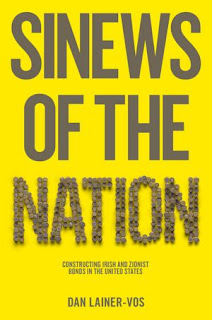New from Cornell University Press:
Magic Lantern Empire: Colonialism and Society in Germany by John Phillip Short.
 About the book
About the book, from the publisher:
Magic Lantern Empire examines German colonialism as a mass cultural and political phenomenon unfolding at the center of a nascent, conflicted German modernity. John Phillip Short draws together strands of propaganda and visual culture, science and fantasy to show how colonialism developed as a contested form of knowledge that both reproduced and blurred class difference in Germany, initiating the masses into a modern market worldview. A nuanced account of how ordinary Germans understood and articulated the idea of empire, this book draws on a diverse range of sources: police files, spy reports, pulp novels, popular science writing, daily newspapers, and both official and private archives.
In Short's historical narrative—peopled by fantasists and fabulists, by impresarios and amateur photographers, by ex-soldiers and rank-and-file socialists, by the luckless and bored along the margins of German society—colonialism emerges in metropolitan Germany through a dialectic of science and enchantment within the context of sharp class conflict. He begins with the organized colonial movement, with its expert scientific and associational structures and emphatic exclusion of the "masses." He then turns to the grassroots colonialism that thrived among the lower classes, who experienced empire through dime novels, wax museums, and panoramas. Finally, he examines the ambivalent posture of Germany’s socialists, who mounted a trenchant critique of colonialism, while in their reading rooms workers spun imperial fantasies. It was from these conflicts, Short argues, that there first emerged in the early twentieth century a modern German sense of the global.
 About the book, from the publisher:
About the book, from the publisher:





























